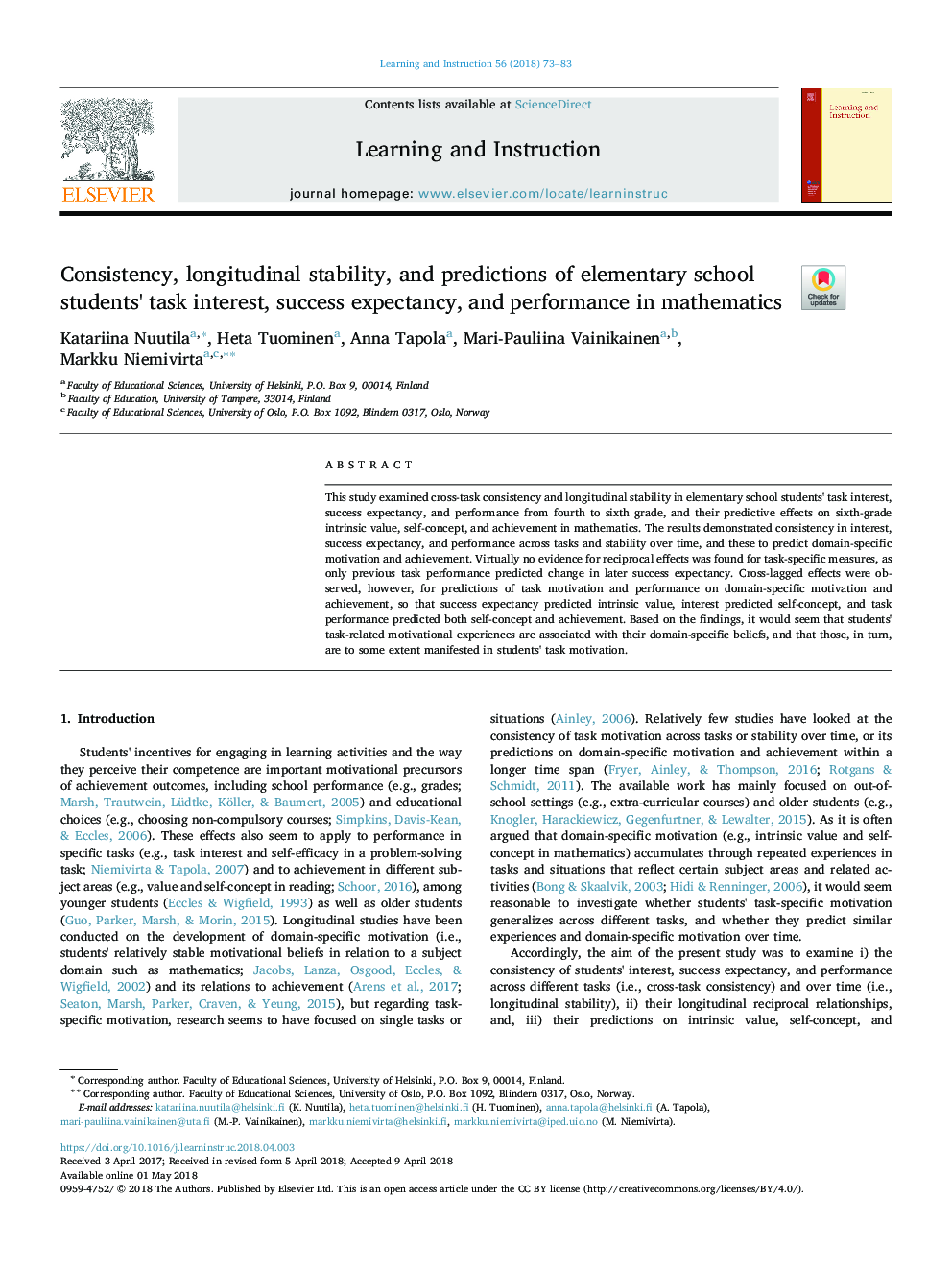| Article ID | Journal | Published Year | Pages | File Type |
|---|---|---|---|---|
| 6845540 | Learning and Instruction | 2018 | 11 Pages |
Abstract
This study examined cross-task consistency and longitudinal stability in elementary school students' task interest, success expectancy, and performance from fourth to sixth grade, and their predictive effects on sixth-grade intrinsic value, self-concept, and achievement in mathematics. The results demonstrated consistency in interest, success expectancy, and performance across tasks and stability over time, and these to predict domain-specific motivation and achievement. Virtually no evidence for reciprocal effects was found for task-specific measures, as only previous task performance predicted change in later success expectancy. Cross-lagged effects were observed, however, for predictions of task motivation and performance on domain-specific motivation and achievement, so that success expectancy predicted intrinsic value, interest predicted self-concept, and task performance predicted both self-concept and achievement. Based on the findings, it would seem that students' task-related motivational experiences are associated with their domain-specific beliefs, and that those, in turn, are to some extent manifested in students' task motivation.
Related Topics
Social Sciences and Humanities
Psychology
Developmental and Educational Psychology
Authors
Katariina Nuutila, Heta Tuominen, Anna Tapola, Mari-Pauliina Vainikainen, Markku Niemivirta,
